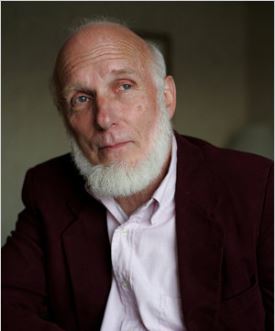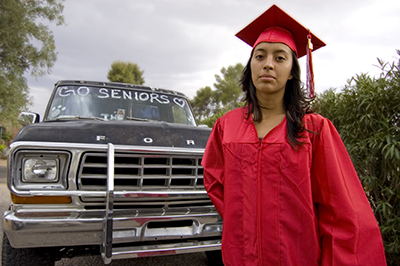WSU’s 18th Annual Diversity Conference Tackles ‘Forgotten History’
OGDEN, Utah – In both the recent New York bombing and the Boston Marathon bombing, technology and social media led to the almost immediate capture of suspects. Today’s events are recorded and told instantaneously from multiple perspectives, but with historical events, important voices and facts from the past have been forgotten or lost.
Participants and presenters at Weber State University’s 18th Annual Diversity Conference, Oct. 6 and 7, will take a look back at America’s history to find the gaps, inaccuracies and outright lies. The goal is to replace misinformation with a shared truth from multiple perspectives that brings tolerance and empathy.

Keynote
James Loewen, best-selling author of the book “Lies My Teacher Told Me: Everything Your American History Textbook Got Wrong,” will present the keynote address Oct. 7 at 11:30 a.m. in the Shepherd Union Ballrooms. The lecture is titled “The most important era in U.S. history that you never heard of, and why it’s still important today,”
Loewen, a sociologist, began teaching at Tougaloo College, a private, historically black, liberal college near Jackson, Mississippi.

James Loewen
Eventually he spent two years at the Smithsonian Institute surveying 12 American history high school textbooks. To his dismay, he discovered “an embarrassing amalgam of bland optimism, blind patriotism and misinformation pure and simple, weighing in at an average of four-and-a-half pounds and 888 pages.”
He writes and speaks about how the dishonest telling of history has created animosity and inequality. Additionally, he believes that boring books have turned away many students from the interesting and important study of history.
“Textbooks today have more diversity than ever,” Loewen said. “You can see it in their photos, but what they lack is any connection to the present, because any reference to the present might be, at least a little bit, controversial. For example, textbooks adequately explain slavery because slavery is an issue of the past. Slavery we have fixed. Racism we still have. Racism is still a controversial topic. Therefore, what could be an interesting discussion of slavery is taught in a way devoid of relevance to the present.”
Theme
The conference theme is “Privileged History: Where did all the diversity go?” which is also the theme of WSU’s Engaged Learning Series this year. The series is a collaborative cross-campus effort to host events and lectures that bring multiple perspectives to a single issue.
“We want to uncover history that has gone missing or is thought to be forgotten, while also creating a space to discuss the importance of seeing the mosaic of participants in and throughout history,” said Adrienne Andrews, WSU’s Chief Diversity Officer. “We understand where we are today in light of where we have been before. Our understanding becomes clearer when we offer a fuller picture to consider.”
Opening Night Event

Mexican American/Raza Studies senior Crystal on graduation day
Credit: Ari Palos
As the kickoff event for WSU’s Diversity Conference, the community is invited watch and react to the documentary “Precious Knowledge” during a free screening Oct. 6 from 6-8 p.m. in the WSU Davis Building 3 Ballroom. An opening reception begins at 5:30 p.m.
One of the most heated public education battles in recent memory raged from 2008 to 2010. At the heart of the debate was Arizona House Bill 2281, which banned Mexican American Studies (MAS) classes in Arizona public schools on the grounds they promoted resentment, advocated ethnic solidarity and encouraged sedition from the United States. The bill’s legal challenges are still making their way through the courts although in 2015, a federal judge struck down some of the most egregious aspects of the law.
The documentary “Precious Knowledge,” directed by Ari Luis Palos, chronicles the debate surrounding the final year of Mexican American Studies at Arizona public schools. Footage captured during a school year at Tucson High School allows viewers a unique look into the classroom. The film interweaves the stories of several students enrolled in the MAS program, along with teachers, education officials and lawmakers who were intent on banning the classes.
Breakout Sessions
Breakout sessions begin Oct. 7 at 8:30 a.m. in the Shepherd Union. Participants may choose from nine sessions with discussions about housing, healthcare, poverty, women in science and desegregation.
Friday, Oct. 7
8:30-9:20 a.m.
- SU 321 Your Economic DNA
- SU 312 Sick of it All: The Struggle for Equal Healthcare Across Diverse Populations
- SU 316 Exploring the Question of Inclusivity and its Relation to Disciplinary Inquiry, Knowledge Creation and Innovative Pedagogies
9:30-10:20 a.m.
- SU 321 The Complex Relationship between Housing and Poverty
- SU 312 Remembering the Diverse Contributions of Science’s Past and How to Reshape Science’s Future
- SU 316 I’m not Racist! Psychological Factors that Shape our View of Others and How to Bring About Change
10:30-11:20 a.m.
- SU 321 Tuning into the Global Voice: A Conversation on Language and Immigration in Higher Education
- SU 312 The Evolution of Women in STEM Fields
- SU 316 The Lost Discourse on Early U.S. School Desegregation: Jim Crow “Busted” by Mendez
11:30 a.m.-12:20 p.m.
- SU Ballroom Conference keynote speaker, James Loewen
12:30 p.m.
- “Teaching What Really Happened: How to Avoid the Tyranny of Textbooks and Get Students Excited about Doing History,” Book signing with author James Loewen
1-2 p.m.
- Roundtable discussion and luncheon. (Registration required)
Conference events are free, and the public is welcome. For more information and to register for the lunch, visit weber.edu/diversity.
Visit weber.edu/wsutoday for more news about Weber State University.
Allison Barlow Hess, Director of Public Relations
801-626-7948 • ahess@weber.edu- Contact:
Adrienne Andrews, Chief Diversity Officer
801-626-7243 • adrienneadrews@weber.eduTeresa Martinez, Diversity Program coordinator
801-626-8512 • teresamartinez1@weber.edu
